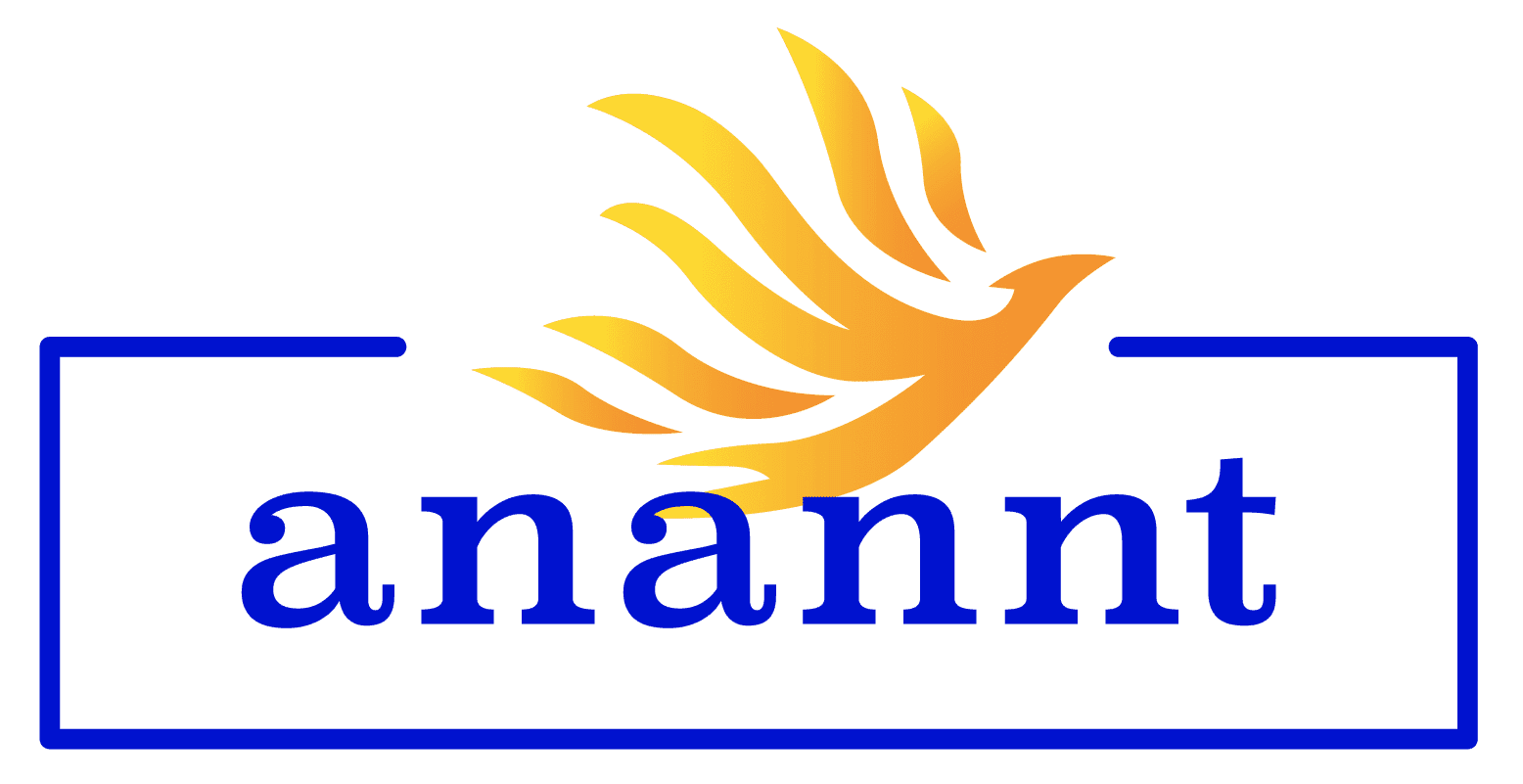
by Vishal | Dec 18, 2022 | IELTS, Motivation, study abroad, Test, Tips
- Get enough sleep so you can concentrate on the exam the next day. If you are having trouble falling asleep, try doing something calming and short before bed.
- To stay sharp mentally and physically, eat healthy foods and drink plenty of water throughout the day. Avoid heavy meals close to test time as they can make you feel sluggish and low on energy. Also, avoid energy drinks or products with a lot of caffeine, as this can often lead to feelings of anxiety or jitteriness.
- Make sure you have everything ready before the test so that you don’t waste time looking for it. Print out directions if needed, bring extra supplies such as pencils and erasers, any paperwork related to the exam (such as an ID), and a watch.
- Take some time in the morning for light exercise such as stretching, yoga, or walking; physical activity increases oxygen flow throughout your body and helps clear your mind so that you can stay focused on test day. This also helps reduce stress levels which may be heightened due to pre-exam anxiety or nerves.
- Instead of studying intensely, try doing relaxed activities to prepare for the exam. Visualize yourself succeeding and do progressive muscle relaxation exercises.
- To improve your concentration and calm down any pre-test anxiety, set aside some time for meditation. Doing so in the morning can help you focus on anything that comes up during the exam. Remember to have a positive attitude – it will help you overcome any challenges!
- Finally the last tips for IELTS examination is, practice deep breathing exercises before heading into the testing area; taking slow breaths has been proven to reduce stress hormone levels while increasing levels of serotonin (a neurotransmitter responsible for regulating moods) which can help keep your spirits high during an otherwise stressful situation like an important examination! Good luck!
Last minute tips
These tips can help you prepare for the IELTS examination, and make sure that you are mentally, physically, and emotionally ready for it. Proper rest and relaxation will help you feel calm on test day, while also understanding what to expect will give you a head start. Best of luck – we know you’ll ace it!
For further tips regarding IELTS exam please visit:
https://prep.anannt.com/register

by Jahnvi | Dec 18, 2022 | IELTS
Do you have trouble understanding native English speakers? You aren’t alone! As your language skills develop, it can be difficult to understand native English speakers. But don’t worry, we have suggestions for you.
Stay calm and focused
In this part of the IELTS test, it’s important that you stay calm and focused. This way, you won’t miss any important information and won’t be overwhelmed by all the audio. To avoid getting stuck on one word for too long and losing track of what is being said, try using context clues to figure out what difficult words mean.
Learn to listen naturally
To improve your score, practice active listening and supplement your studies with immersive experiences such as watching videos in English, listening to podcasts, and participating in conversation clubs. Through active listening, you’ll be able to listen naturally and accurately assess what is being said to answer questions correctly.
Manage your time wisely
Doing well on this part of the exam also requires good time management. Pay attention to what is being said and how much time is left for each question so you don’t waste time. Don’t forget to use the extra time in the end to review your answers!
Practice makes perfect
The best way to prepare for this section of the test is to practice regularly beforehand. Familiarize yourself with different accents so that unfamiliar speech patterns don’t affect your performance. Listen to audio recordings in English regularly to further improve your listening comprehension. This will give you an advantage over other test takers on exam day!
With these tips in mind, there’s no need to fear when tackling this part of the IELTS test! If you plan, practice diligently, focus during the exam, and manage your time wisely, you’ll be successful on exam day. With these strategies, you can be sure that you’ll ace this part of the exam with flying colours! Good luck!

by Jahnvi | Dec 17, 2022 | OPT and CPT
Are you an international student looking for ways to gain experience in the United States? If yes, then you may have heard of OPT and CPT. Both terms are important for understanding the F-1 Visa program and what employment opportunities are available for international students. In this blog post, we’ll explore what OPT and CPT are, their major differences, and discuss Curricular Practical Training (CPT) status and Optional Practical Training (OPT) status in more detail.
Outline:
I. Introduction to OPT and CPT
II. Major Difference between OPT and CPT
III. Understanding Curricular Practical Training (CPT) Status
IV. Understanding Optical Practical Training (OPT) Status
V. Understanding the 24-Month STEM OPT Extension
VI. Understanding the Cap-gap extension
VII. Conclusion
What is OPT?
OPT stands for Optional Practical Training. It allows F-1 visa holders to work in the US related to their field of study while they complete their degree program. For most STEM majors, the standard period of eligibility is 12 months with a possible extension of 24 months. Students must apply beforehand through the USCIS website to receive approval before working under this program.
What is CPT?
CPT stands for Curricular Practical Training. This type of training is part of an educational program that provides practical experience related to a student’s field of study that cannot be obtained in a classroom setting. Unlike OPT, students can start working immediately since it does not require prior approval from USCIS. However, students must obtain authorization from their school’s Designated School Official (DSO) before starting any paid employment activities.
Major Difference between OPT and CPT
- Time Eligibility for Each Program
For most STEM majors, the standard period of eligibility under the OPT program is 12 months with a possible extension of 24 months while CPT has no time limit on how long you can stay as long as you remain enrolled at your institution or school.
- Type of Work Allowed in Each Program
Under both programs, students are allowed to work in jobs that are related to their field of study but only OPT allows them to take on regular employment activities like full-time jobs or internships in any company regardless if it’s related or not related to their field of study whereas CPT requires that all employment activities must be related directly or indirectly to your studies at your school or institution (e.g., internships).
Understanding Curricular Practical Training (CPT) Status
There are several benefits associated with obtaining a CPT status including types of employee training and paid internships available for F-1 student visa holders.
Through this program, international students on an F-1 visa can apply for various types of jobs such as internships at companies within their field; research projects; teaching assistantships; part-time jobs; co-ops; summer jobs; etc., which will help them gain valuable experience while they complete their degree programs in the US.
To be eligible for the Curricular Practical Training (CPT) status, international students need proof that they need practical experience as part of their academic curriculum provided by either faculty members or employers stating why such training would be beneficial towards completion/graduation from their current degree program
How Many Hours Can You Work With CPT?
The hours an individual works depend on whether a student pursues full-time or part-time practical training opportunities during his/her studies at a US college/university or institution–students pursuing full-time practical training opportunities may work up to 40 hours per week while those trying out part-time positions may work up 20 hours per week.
Understanding Optional Practical Training (OPT) Status
OPT status is a form of employment authorization that allows international students who have graduated from a U.S. college or university to work in the United States for up to 12 months following their graduation. This period can be extended by an additional 24 months for certain STEM (Science, Technology, Engineering and Mathematics) degree holders under what is known as the STEM OPT Extension program.
A student is eligible for OPT in two different ways –
Pre-completion OPT allows F-1 visa holders who have been enrolled at a school full-time for at least nine months to apply for part time work while they are still in school. This type of OPT is available to those who are currently enrolled in a degree program and plan on graduating within 12 months after their request date for pre-completion OPT is approved.
- Benefits of Pre-Completion OPT: Pre-Completion OPT provides opportunities for international students to gain real-world experience related to their studies while they are still enrolled in school. This helps them become more marketable when looking for jobs after graduation since employers generally prefer to hire candidates with prior work experience over those without any experience whatsoever. Additionally, working part-time while still enrolled in school can help international students build relationships with potential employers and increase their chances of getting hired upon graduation.
- Applying For Pre-Completion OPT: The process of applying for pre-completion OPT includes submitting Form I-765 along with supporting documents such as proof of enrollment and financial support documentation to USCIS (United States Citizenship & Immigration Services). It typically takes USCIS about three months to process pre-completion opt applications so it’s important that applicants submit their applications early enough so that they get approved before their intended start date of employment.
- Post-Completion Opt
Post-completion opt is available to F1 visa holders who have completed their degree program and wish to gain practical training related to the field that they studied over a period of up to 12 months (or up to 24 months if eligible under STEM extension). Applicants must also be able to demonstrate that they are able maintain themselves financially during the duration of their post completion opt period without needing support from anyone else or any other form of financial aid other than what they earned through employment during the post completion opt period itself.
- Advantages Of Post Completion Opt: The main advantage associated with post-completion opt is that it provides international students with an opportunity to gain practical experience related to their fields right after graduation which helps them become more competitive when looking for jobs afterward since employers generally prefer candidates with prior experience over those without any experience whatsoever.
- Applying For Post Completion Opt: The process of applying for post-completion opt involves submitting Form I – 765 along with supporting documents such as diploma transcripts , signed contracts from employers, proof of financial support, etc .to USCIS. It usually takes about 3 months for USCIS to take action on these applications so it’s important applicants don’t wait until the last minute to submit them.
Understanding the 24-Month STEM OPT Extension
The 24-Month STEM OPT Extension is a unique opportunity for students who have obtained a degree in Science, Technology, Engineering, and Math (STEM). This program allows them to extend their post-completion Optional Practical Training (OPT) period by up to another 24 months. To qualify, they must be currently working in the Post-Completion OPT period and have obtained a bachelor’s, master’s or doctoral-level STEM degree from an approved college or university. Furthermore, they must have signed the Form I-983 training plan with their employer and this employer must be using the E-Verify Program provided by DHS.gov. This extension can give students extra time for valuable work experiences related to their field of study.
Understanding the Cap-gap extension
The cap-gap extension is the window of time between the expiration of a student’s F-1 visa and when their employer’s H-1B petition is accepted, allowing students to remain in the US without interruption. This extension and allowance from USCIS helps protect students from potentially having to return home and wait for their H-1B visa status to begin. It also allows for a smoother transition into employment as employees will not have to acclimate twice from international travel twice in such a short period of time. The cap-gap extension enables foreign students to apply for and receive their H-1B visas with minimal disruption when taking a job offer in the US after completing their studies there.
Conclusion:
Whether you’re an international student looking for ways to gain experience in the US or just curious about different types of visas available here – understanding both OPT and CPT programs is essential so that you make informed decisions about which one best fits your needs when it comes down choosing job opportunities. Securing professional experience in your field of study on a student visa can be especially challenging, but the effort is worth it. Planning ahead and researching the necessary paperwork is key to finding meaningful employment opportunities. Even though additional paperwork may be required in order to secure employment, the window into your desired profession and industry can open many doors for present or future career options that might not have been available otherwise.
Remember: taking the initiative to plan ahead and do any needed research will enable you to find employment while studying on a student visa in order to gain valuable experience in your field of study!

by Nabeela | Dec 17, 2022 | IELTS
The IELTS reading section is one of the four sections tested during the English language proficiency exam. It assesses a candidate’s ability to interpret, analyze and evaluate written text. The tasks are designed to reflect real-life scenarios that students may encounter in an academic context.
The reading section consists of three passages with accompanying questions. The passages are generally taken from books, magazines, newspapers and journals on a variety of topics. Each passage is followed by questions that test the candidate’s comprehension of the text. The questions may range from finding specific details to interpreting an argument or analyzing a tone.
Time management is key in this section as candidates only have one hour to complete the entire test. In addition, candidates should be mindful of how much time they spend on each passage and question to maximize their scores.
To prepare for this section, students must become familiar with the types of passages used in the IELTS reading test. Practicing past questions can also help students get used to the structure and types of questions they may encounter. Finally, developing a good reading speed is essential to complete the test within the allotted time frame. With practice and patience, candidates can master this section.
5 Tips to improve your IELTS Reading Section
Acing the IELTS reading section may seem like a daunting task, but with practice and dedication, it’s possible to ace it! Here are five tips that will help you get the best score possible on your IELTS Reading Test:
Understand Question Types
It is important to read the instructions for each question carefully before starting so that you can understand the type of question being asked. The IELTS Reading Test consists of three different types of questions: True/False/Not Given, Matching Headings, and Multiple Choice. Each of these question types requires a different approach when answering and so it’s essential to be aware of their differences.
Read Carefully
When answering any reading questions, pay close attention to detail and read each sentence thoroughly. Look for facts, dates and places as they will give clues to the right answer, as well as any keywords that might help you answer the specific question type being asked.
Skim for Keywords
Once you have read the instructions for a particular question, quickly scan through the passage looking for keywords related to this topic. This makes it easier to locate relevant information faster than if you were to read every single line in search of answers or explanations.
Answer What You Know First
If you find yourself stuck on a difficult or unfamiliar question, start by answering what you know first then move step by step until you reach your destination answer. This allows you to build upon small successes rather than getting overwhelmed with an entire passage at once.
Practice Makes Perfect
As mentioned earlier, practice does make perfect when it comes to acing your IELTS Reading Section test! Take time out of each day or week dedicated solely towards studying different types of questions and passages so that when test day arrives; you’ll feel confident and prepared! Try testing yourself with mock exams or finding sample papers online – both are great ways to sharpen your skillset!
By following these tips closely and dedicating time towards studying for your reading section test you will be sure to get the best score possible! Remember that anything is possible with enough practice and determination – So reach out – we’d love to help you achieve your language goals! Best of luck – we know you’ll ace it!

by Vishal | Dec 17, 2022 | Admissions counselling, IELTS, study abroad, Test
The International English Language Testing System (IELTS) writing section consist two tasks. Task 1 requires test takers to write a report based on information provided in a diagram, chart, or table. This task type typically lasts for 20 minutes and is worth one-third of the total score. Task 2 requires test takers to write an essay in response to a given issue or topic. This task type typically lasts for 40 minutes and is worth two-thirds of the total score. For the success of the 2 tasks we need to improve your IELTS writing skills.
Preparing for the IELTS Writing Section: Tips to Take Your Essay to the Next Level
Writing an essay for IELTS exam can be a stressful, but with some strategies, you can additionally craft an amazing piece of content that will impress the examiners and help you get the score you need. Here are some tips to make sure your essay is as successful as possible.
Plan Ahead
Creating an excellent essay takes time and effort – it’s important to make sure your work is well-paced and persuasive. Before jumping into the writing process, plan ahead by creating an outline of your argument. This will help you structure your points, identify any holes in your research, and decide how to transition between topics. Having a plan will help you stay organized and make it easy to access your research when needed. With just a little bit of advanced preparation, you can set yourself up for success!
Spice Up Your Language
To make sure your message is heard and understood by all readers, try using different language structures to express yourself. This will help you tell your story more vividly and add color to your communication. And don’t be afraid to experiment! This can Improve IELTS writing skills.
Logic Matters
One way to make your ideas flow better when writing is by creating a ‘map’ or outline beforehand. This can be done in many ways, as long as it helps you organize information into tables or graphs for easier reading. Once you’ve arranged everything in a logical order, it’s time to start writing!
Accuracy Matters Too
Although often overlooked in our haste to finish our work quickly, checking for accuracy – such as spelling, grammar and punctuation – is critical for ensuring that the written communication we produce is clear and easy-to-understand for all readers. Taking those few extra minutes at the end of each sentence or word choice may seem tedious but it really pays off in terms of making sure that every detail is perfect – think of it as adding icing on top of a beautiful cake!
sections !
Confidence and skill improvement
With these tips in mind, you’ll have no problem tackling the essay for IELTS with confidence! And of course if nerves are still getting in the way of you achieving success on this important exam then don’t hesitate asking us about our tutoring services which help boost both skillset and self-assurance levels prior taking any formal test. We’re here to help guide students towards their language goals every step of the way! Good luck – we know you’ll completely ace it! Keep in mind the tips we’ve discussed in this blog post and you’ll be well on your way to getting the score you need. And if you’re still feeling unsure about taking the IELTS, remember that we offer tutoring services to help you boost your skills and confidence. So don’t hesitate to reach out – we’d love to help you achieve your language goals! Best of luck!
Now that you’ve got these strategies and tips in mind, it’s time to get writing! With proper preparation, practice, and a little bit of patience, there’s no doubt that you can successfully ace the IELTS writing section and pass with flying colors. Good luck!
We wish you all the best of luck on your upcoming IELTS exam! Don’t forget to use these strategies and tips when you’re crafting your essay – they’ll help you impress the examiners and get that score you need. And remember, we’re here to offer our tutoring services if nerves or any other issue gets in your way. So reach out – we’d love to help you achieve your language goals! Best of luck – we know you’ll ace it!
For more information visit
https://www.ielts.org/
by Labhesh | Dec 8, 2021 | Admissions counselling, advanced placement, AP, study abroad, Test
Syllabus
-Short Fiction 1
Topics may include:
- Interpreting the role of character in fiction
- Identifying and interpreting setting
- Understanding how a story’s structure affects interpretations
- Understanding and interpreting a narrator’s perspective
- Reading texts literally and figuratively
- The basics of literary analysis
-Poetry 1
Topics may include:
- Identifying characters in poetry
- Understanding and interpreting meaning in poetic structure
- Analyzing word choice to find meaning
- Identifying techniques like contrast, simile, metaphor, and alliteration
-Longer Fiction or Drama 1
Topics may include:
- Interpreting character description and perspective
- Character evolution throughout a narrative
- Conflict and plot development
- Interpreting symbolism
- Identifying evidence and supporting literary arguments
-Short Fiction 2
Topics may include:
- Protagonists, antagonists, character relationships, and conflict
- Character interactions with setting and its significance
- Archetypes in literature
- Types of narration like stream of consciousness
- Narrative distance, tone, and perspective
-Poetry 2
Topics may include:
- Traits of closed and open structures in poetry
- Use of techniques like imagery and hyperbole
- Types of comparisons in poetry including personification and allusion
- Identifying and interpreting extended metaphors
-Longer Fiction or Drama 2
Topics may include:
- Interpreting foil characters
- Understanding and interpreting character motives
- Understanding nonlinear narrative structures like flashbacks and foreshadowing
- The effect of narrative tone and bias on reading
- Characters as symbols, metaphors, and archetypes
- Developing literary arguments within a broader context of works
-Short Fiction 3
Topics may include:
- Sudden and more gradual change in characters
- Epiphany as a driver of plot
- Relationships between characters and groups
- Character interactions with settings
- The significance of the pacing of a narrative
- Setting as a symbol
- Interpreting texts in their historical and societal contexts
-Poetry 3
Topics may include:
- Looking at punctuation and structural patterns
- Interpreting juxtaposition, paradox, and irony
- How ambiguity can allow for various interpretations
- Identifying symbols, conceits, and allusions
- Learning proper attribution and citation in literary analysis
-Longer Fiction or Drama 3
Topics may include:
- Looking at a character’s response to the resolution of a narrative
- Suspense, resolution, and plot development
- Narrative inconsistencies and contrasting perspectives
You can find the detailed syllabus and topicwise tests on Anannt’s online portal.
For more details on AP content and syllabus, feel free to contact [email protected] or simply whatsapp us here.
by Labhesh | Dec 8, 2021 | Admissions counselling, advanced placement, AP, study abroad, Test
Syllabus
- The Power of Perspective:
The Author and The Audience
- The Power of Evidence:
Claim, Evidence, and Commentary (Audience and Thesis)
- The Power of Controversy:
Argument and Storytelling
- The Power of Nature:
Analysis 101
- The Power of Influence:
Research, Claims, and Citing Sources
- The Power of Education:
Claims and Evidence, Style
- The Power of the Written Word:
Diction, Style, Mechanics, and Structure
- The Power of Beauty:
Visual Rhetoric
- The Power of Winning
You can find the detailed syllabus and topicwise tests on Anannt’s online portal.
For more details on AP content and syllabus, feel free to contact [email protected] or simply whatsapp us here.
by Labhesh | Dec 8, 2021 | Admissions counselling, advanced placement, AP, study abroad, Test
Syllabus
- The Global Tapestry
- Networks of Exchange
- Land-Based Empires
- Transoceanic Interconnections
- Revolutions
- Consequences of Industrialization
- Global Conflict
- Cold War and Decolonization
- Globalization
You can find the detailed syllabus and topicwise tests on Anannt’s online portal.
For more details on AP content and syllabus, feel free to contact [email protected] or simply whatsapp us here.
by Labhesh | Dec 8, 2021 | Admissions counselling, advanced placement, AP, study abroad, Test
Themes of AP U.S. History
- American and National Identity (NAT)
- Politics and Power (POL)
- Work, Exchange, and Technology (WXT)
- Culture and Society (CUL)
- Migration and Settlement (MIG)
- Geography and the Environment (GEO)
- America in the World (WOR)
You can find the detailed syllabus and topicwise tests on Anannt’s online portal.
For more details on AP content and syllabus, feel free to contact [email protected] or simply whatsapp us here.
by Labhesh | Dec 6, 2021 | Admissions counselling, advanced placement, AP, study abroad, Test
The course frameworks for AP Calculus AB define content students must know and skills
students must master in order to earn transferable, long-term understandings of calculus.
Syllabus:
- Limits and continuity
- Differentiation: definition and basic derivative rules
- Differentiation: composite, implicit, and inverse functions
- Contextual applications of differentiation
- Applying derivatives to analyze functions
- Integration and accumulation of change
- Differential equations
- Applications of integration
You can find the detailed syllabus and topicwise tests on Anannt’s online portal.
For more details on AP content and syllabus, feel free to contact [email protected] or simply WhatsApp us here.






Recent Comments